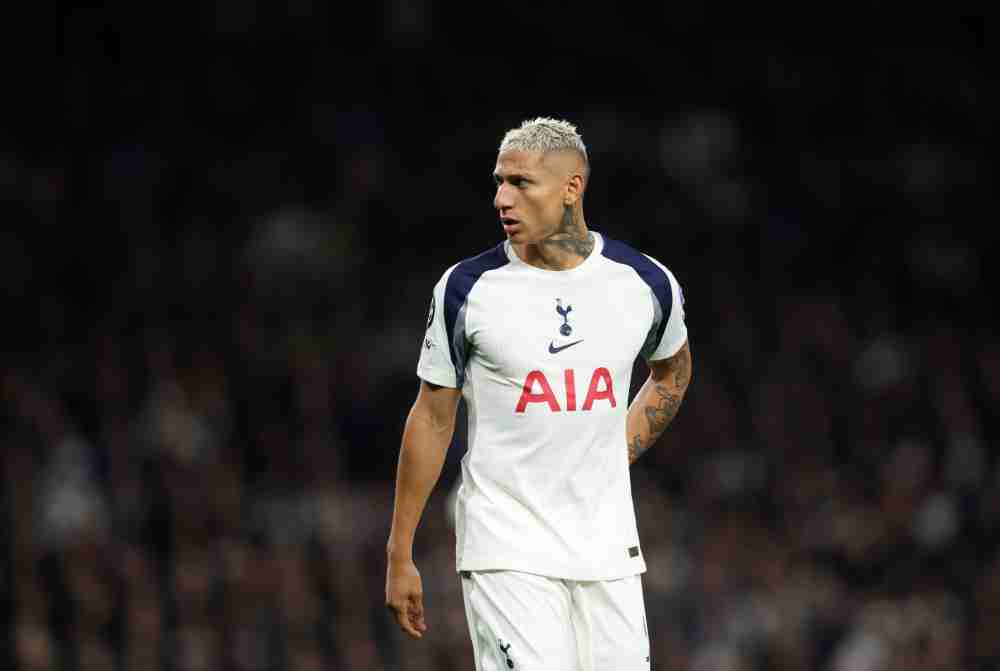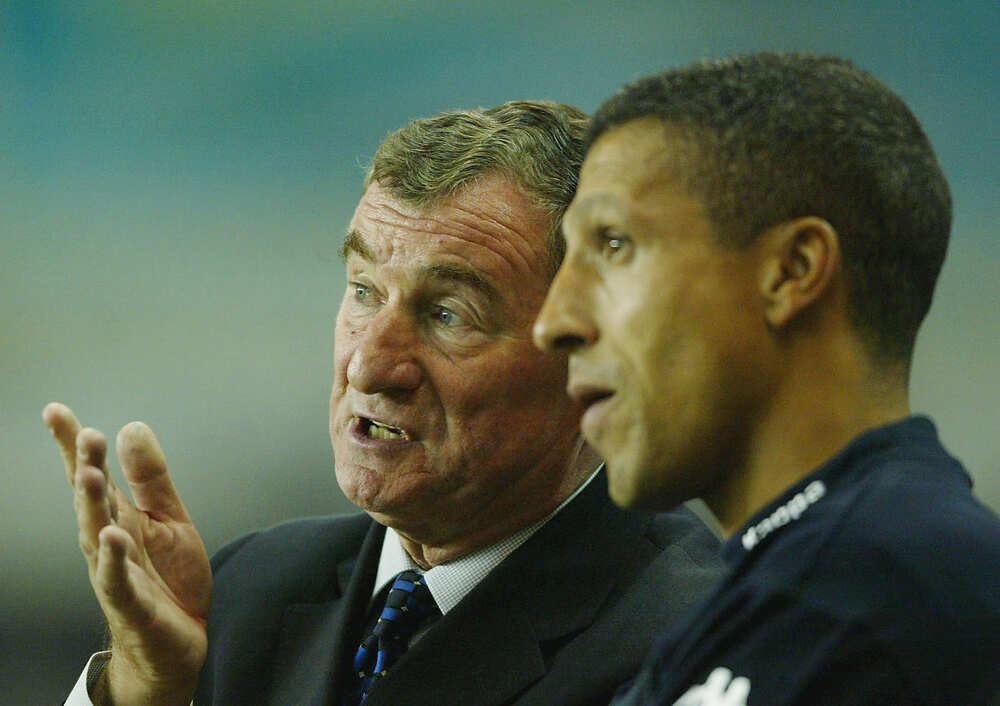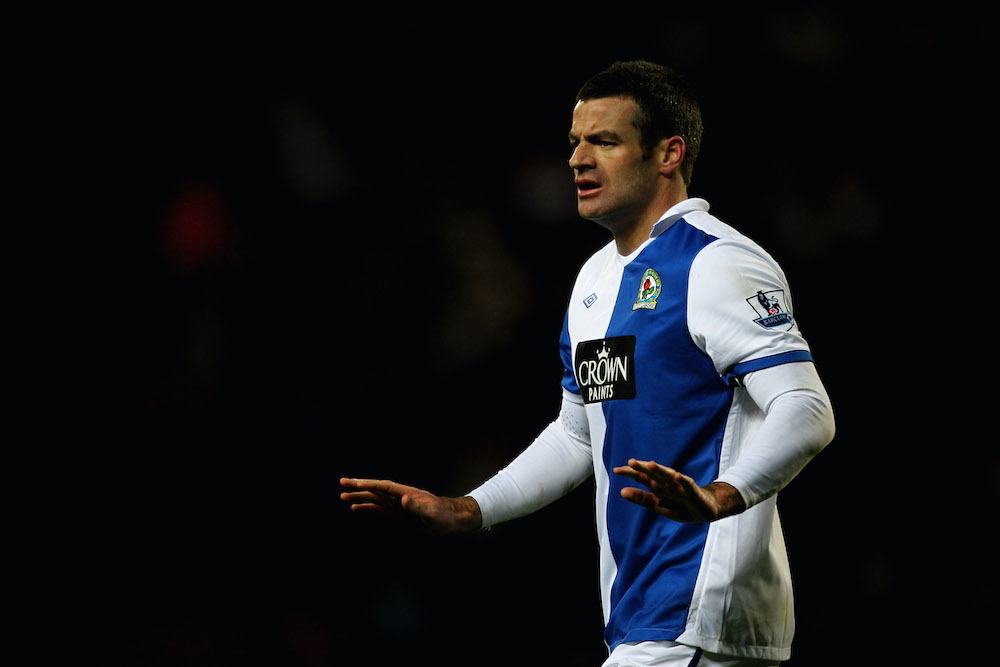An interview with Ryan Nelsen, by Callum McFadden for WFi.
What was your experience of football like growing up in New Zealand and what was the standing of the game like?
“Rugby and cricket were the two main sports, and I love cricket so much. It was probably my number one sport growing up.
“My father was a rugby guy, but my grandfather from my mum’s side was the manager of the New Zealand football team back in the ‘50s. So, in the end, I kind of played soccer as well, but I played multiple sports.
“Let’s just say that as you start getting better and better, the older you got, the pressure to play cricket especially, and rugby was a lot more than football because there was no career in football when you came to New Zealand.”
What made you stick with football despite the pressure to pursue cricket and rugby?
“I just loved it. It just came kind of naturally to me. I mean, a lot of sports did, but I really enjoyed it, and I think I just kind of got into certain windows of opportunity that put me on the football path.
“I just felt like I wanted to travel, you know? Football had that kind of appeal. It felt like it was out there in the world, whereas with rugby and cricket, especially cricket, you kind of felt like you’d still be in New Zealand, which wasn’t a bad thing. But I wanted to travel.
“So really, the main thing with football was a university scholarship to America, and that kind of provided me an opportunity to play a sport and get an education.
“I got ridiculed in the media by all the cricket people saying you know, ‘How could you turn down cricket?’ and all that kind of stuff. To go on a football scholarship to America was seen as crazy.
Can you describe your experience of combining academic study with football during your time in America?
“I think it was a very good grounding for me as it laid a foundation for me as that stage of my life was really important. From 18 to 21, you can be pretty vulnerable and not always make the best life decisions because although you are an adult, you’re not fully there yet.
“The environment the university provided was great for me as I was able to start finding what I was good at intellectually.
“The facilities at university are second to none over in America, even better than most Premier League teams. You’re surrounded by very good people who are high-class individuals in different sports or different academia. It was great to be able to learn from that sort of environment.”
You joined DC United while in the States and established yourself at the club. You were named captain in 2003 and led the club to the MLS Cup in 2004. How did it feel to become a captain and title winner all within two years?
“Looking back, it was an incredibly special time for me.
“I was still relatively young when I joined the club but we had some really good players and some really experienced players.
“The league was in a bit of trouble back when I initially joined, but during my time with the club, it started growing out of that and slowly but surely evolving into what it is today.
“Being captain was a massive learning curve on leadership for me because I had to learn how to handle big personalities whereas I was maybe seen at times as just a little guy from New Zealand so it was important that I learned quickly in order to effectively lead the team to success and help everybody’s personalities move in one direction.
“Thankfully, I grew as an individual in those two years, and it culminated with one of the best experiences of my career by winning and captaining the team to MLS success.
“No matter what I achieved in my career after that, I always look back and know that my time at DC United was one of the real special moments of my time in football.”
You played alongside Freddy Adu who was seen as a potential wonderkid of US Soccer. What was he like as a teammate during your time at DC United?
“Playing with Freddy was such a unique situation because he had incredible attention from when he was about 14.
“I don’t want to sound condescending, but his situation was handled extremely badly by everybody.
“People should hold their hands up for what went wrong in terms of how they handled this phenomenal talent at such a young age at the age of 14 and by that, I mean American soccer and MLS.
“I’ve never seen a football player like him in my life and I think the league and the national association knew that they needed that type of player too.
“I think of it as being like the NBA which needed Larry Bird and Magic Johnson to show up with their big rivalry to help growth of the game.
“They thought that Freddy was going to be the tipping point, and that they had the next big player in world football and if they could grow him in the league then the league could grow in leaps and bounds too.
“The special attention that he received was crazy. Just as an example, one day we’re training and Michael Johnson, the Olympic sprinter, turns up and they pull Freddie out of our training so he could do one-on-one with one of the best sprinters in the world, you know?
“He got that kind of treatment everywhere he went but nobody really looked after the kid. They gave him all the money and the bells and whistles but ultimately didn’t teach him that he didn’t have the foundation, as you shouldn’t when you’re 14, you know, just a kid.
“They didn’t really prepare him properly to handle and grow into what he potentially could be and unfortunately, he never really kicked on.
“I don’t blame Freddy at all. It was the environment, and even us as older players, we saw this was wrong, but again, the league kind of had the golden child. So, it was one of those really. I think everybody learned a lot from that whole scenario. It was a really fascinating time.”
Mark Hughes signed you for Blackburn Rovers in 2005 and you were able to challenge at the top end of the Premier League while beating some of the top clubs such as Manchester United and Arsenal. How do you reflect on your time working under Hughes?
“It was just a really good time. We had a team that was very hard to beat; nobody wanted to play us. I think that was it. We were just that awkward team that, you know, if you went to Ewood and it’s snowed, rained, and blew a gale during the 90 minutes, and then you’ve got 11 kind of ugly Rovers players just playing some good football and also kicking the living daylights out of teams, it was just horrible to play against.
“The crowd was always up for it too. They were along for the ride as well. So it was very difficult for teams to play against us because we could play football, but we also knew how to roll our sleeves up.
“That kind of DNA was built by Mark Hughes who inspired us with an underdog mentality that enabled us to think that we could challenge the so-called big guys.
“He also recruited well and we signed players such as Benni McCarthy and Roque Santa Cruz who were top-class talents.
“Even with players of that ilk, there were no real egos, and we loved that. Players like Roque and Benni could deliver 20-25 goals a season which we needed to get to that next level, you need a bit of elite talent, if you know what I mean.
“Those two were so special and it was a testament to them and the club that they could fit perfectly into the changing room and into the environment while helping us achieve good things together.”
How did you feel about the transition from Mark Hughes to Sam Allardyce as manager at Blackburn Rovers?
“Sam came in and was able to do a really good job as well, because when Mark left, we got Paul Ince in as manager and I think the club tried to replicate the kind of Mark Hughes, you know, ex-player, just finished playing and is a kind of hungry new manager.
“Paul was just completely different. I am not saying he was right or wrong, but he just had a different kind of mentality in the way he approached the game and it probably didn’t suit the team at the time.
“We had been built under a different kind of mindset. So we really struggled and we were in big trouble. We went from being a team in the top third of the league to relegation candidates so the club made the decision to bring Sam in.
“When Sam came in, he just brought back a bit of that hardness that we had kind of fallen away from and whatever you say about Sam Allardyce, he was very organised.
“He knew exactly what he wanted and how his teams wanted to play. No team wants to play a Sam Allardyce team; it’s just as simple as that.
“Despite that, I think there’s a bit of a misconception out there about him as he did like to play football too.
“But first and foremost, you know, it’d be bloody tough to play against. So he brought that back, and once we kind of got that engrained back into us, we again became a very tough team to play against and progressed in the right direction again.”
You left Blackburn for Tottenham in 2012 when Harry Redknapp brought you to White Hart Lane. How do you reflect on that move as it was seen as a shock at the time?
“I got a call from Blackburn saying that we don’t need your services anymore, pack up your locker room and move on.’
“I was like, ‘Oh, here we go.’ Then the second phone call was from Harry Redknapp, and he goes, ‘Ryan, I hear you’re moving on from Blackburn. Would you like to come down to Tottenham?’
“The way it came about so quickly was just incredible. Harry’s an amazing guy, you know. For me, it was like, ‘Oh, okay.’
“The saddest thing was not being able to say bye to a lot of the people I worked with at Blackburn and the fans, even to this day, was a little heartbreaking.
“However, I ended up just getting on a train and going down and I joined a Tottenham team that was flying at the time and had some phenomenal players. It was just an incredible experience.
“I was there because at the time they probably had some injury concerns at centre back, and I didn’t even think I’d see a minute of game time so to play was a bonus for me.
“I was always trying to help Harry in the locker room a bit and I loved every minute of it while I was there.
“If Harry was still there come the summer then I probably would have played continuously and had another year at Tottenham. But when the England thing happened with Harry, and he and Daniel kind of fell out a bit over that.
“The way I would describe Harry was that he was like an uncle that you just love. He was just a really caring guy; he cared about all the players and wanted to play the right football.
“I think the hard thing is, you know, when you’ve got that many personalities and different egos and so much talent on that team, it’s very difficult as a manager to control. But him and his coaching staff, I thought, were just top class.”
What was it like training alongside top players like Gareth Bale and Luka Modric at Tottenham Hotspur?
“The squad had quality players like Gareth Bale and Luka Modric but the likes of Rafael van der Vaart and Niko Kranjcar were there too.
“People probably use the word ‘world-class’ a bit too often, but there was a difference between Gareth and Luka and the rest of the squad. No disrespect to van der Vaart and all the other guys, but Luka and Gareth were elite, they were incredible.
“They were just great men as well, just lovely guys. All the Tottenham team were pretty good; you could see Kyle Walker as a young guy coming through and just going, ‘Oh god, this guy is just a freak, you know, he’s just so good.’ We had so much talent in every position.”
Finally, Ryan, can you describe your experience of representing New Zealand at the 2010 World Cup in South Africa?
“I only played about 50 times for New Zealand because it’s so hard going back from the UK, you know, when you’re in the Premier League, to fly to the other side of the world to play against, no disrespect, Fiji or American Samoa or nations like that.
“However, it was always a good opportunity to show or give something back to my country back home.
“The whole attitude when we made it to the World Cup was that we wanted to actually try and do something, to be remembered.
“I told the players that we did not want to be remembered just because as made the World Cup, but to be remembered for something special.
“So we kind of drilled that into everybody’s heads pretty early. And it’s funny, you know, when I look back, people would be saying, you know, ‘Don’t worry, you know, we’ll be fine, you know, we’ve got Ryan, he’s organised and used to playing at this level.’
“So I felt that was a lot of pressure on me and the players considering that we were playing against Italy who had 18 world-class players while I am just an older guy running around in the Premier League.
“Thankfully, we had a really good, solid team that just again wouldn’t lie down for anybody and the onus was not on me because I would never have wanted that and to be fair, none of the guys in our team were afraid of the environment.
“Everybody would have said if we don’t get beaten pretty convincingly in all three games, that’s a good World Cup so to be unbeaten in three games was exceptional.”


